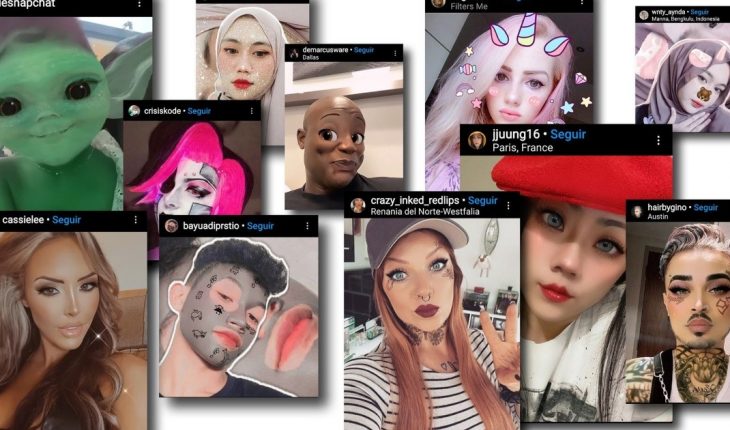In Argentina, 60% of women who use Instagram, apply filters or edit their photos before publishing them. Social networks are the order of the day, but also, of the market: so every time many and many of us are about to publish an image, you probably check the color, your posture in front of the lens and you want to make some modifications, but what kind of adjustments? Why does this happen? With the expansion of digital tools also grew the use of applications that allow in addition to saturating the color of photos, add glitter, play trivia, cover “imperfections”. Many filters are designed to completely retouch our image: enlarge eyes, expand lips, refine the chin.
A situation that even generates a distortion of the image not only that we provide of ourselves but of the one we consume, very distant from the one returned by the mirror. In this sense, the journalist Aldana del Giudice de Filo. News produced a report that addresses this issue. And for this he spoke with the professionals and content creators, the dermatologist Irene Vera, the cosmetologist Daniela “Dadatina” López and the activist and founder of Bellamente, Candela Yatche, who reflected on the subject with a diverse and committed perspective.
“Pieles reales” is an initiative and guide made by Dadatina’s book after messages from her followers “sad and disappointed because they did not see the skin they wanted”. “It’s breaking with this paradigm that skin is only healthy if it doesn’t have pores, if it doesn’t have acne, it doesn’t make you mark.” Today there are applications that with two minutes we can modify the body completely. There are even filters that in seconds modify our face. It is interesting to see that these filters of ‘beauty’ always seek to bring the features of our face closer to the ideal, “says Yatche, who puts his accent on various problems that pursue beauty standards such as eating disorders, and more.
Regarding this problem, the Norwegian Ministry of Children and Equality approved a law that obliges influencers to communicate when they have modified a photograph. Vera brings another concept: dysmorphophobia, which is understood as “the perception of disagreement with one’s own body, feeling it anomalous in some of its features or characteristics.” We see images on networks and compare ourselves to those images. We can even compare ourselves with our own edited images”, adds Yatche, also pointing out the demand for “self-love”: “Nowadays many messages of ‘love, accept’ are transmitted and sometimes that takes a little more time than one thinks”. The professionals agree as a final message “do not stigmatize” but “also not stop controlling” with a consultation with specialists in dermatology. “Because the skin is talking and telling us something,” they close.
Real skins: what do filters hide from us?
December 15, 2021 |





